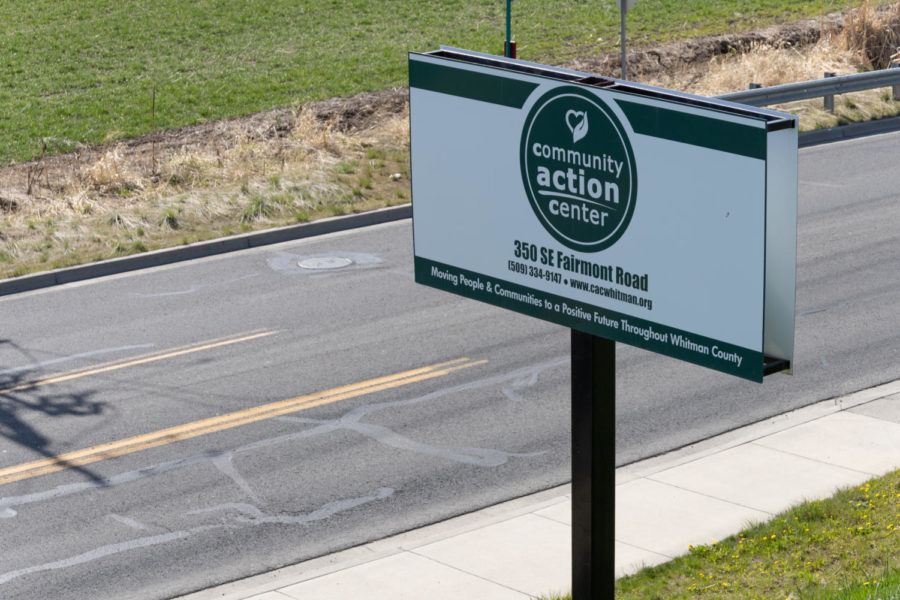‘We’re all one bad day away from being homeless’
Varying degrees of community support available; Pullman lacks shelter, affordable healthcare
Alana Inlow, CAC board member and WSU sociology doctoral candidate, said a big obstacle with establishing a homeless shelter in Pullman is lack of exposure to the crises.
April 21, 2021
*Editor’s note: This article has been corrected to show the Family Promise of the Palouse warming shelter was unable to remain operational, not the Community Action Center’s.
Homelessness affects people in varying degrees and is not as apparent as the public may perceive.
While some instances of homelessness may be short-term due to crises at a particular time, other individuals may experience long-term homelessness due to exhaustion of any available resources, said Pullman Police Department Cmdr. Jake Opgenorth.
“There are so many different reasons and stories behind why people are homeless,” Opgenorth said.
Short-term homelessness might occur after a person leaves an abusive relationship, loses their job, encounters a temporary crisis or experiences another unexpected situation. Long-term homelessness happens, in part, for many of the same reasons, in addition to other factors such as addiction, intergenerational poverty and mental health concerns, Opgenorth said.
Pullman PD issues emergency one-night hotel vouchers to individuals in need in partnership with the Community Action Center. The individuals are also provided with information on how they can receive more help from the CAC, he said.
To better support homeless individuals and elevate them out of their positions, Opgenorth said society must provide affordable addiction and mental health resources. In addition to lacking affordable treatment options, Pullman also does not have a homeless shelter.
Resources are available to any person willing to follow the expectations set by an organization and society, but the person who is homeless must do their part, Opgenorth said.
“I wouldn’t say it’s a choice being homeless,” he said, “but their lifestyle is their choice.”
Opgenorth said Pullman has three known long-term homeless individuals who have moved around the city for years. While assistance is offered to the three individuals in various ways, they have not taken the necessary steps to better their living situation.
The Pullman community is generally very supportive of the local homeless population, he said. Whenever an individual stands on Stadium Way or another busy street, the community provides resources such as food, clothing and other means of living, he said.
“I’ve always been impressed with this community’s desire to help anybody they can,” Opgenorth said.
Despite any community support provided, it is ultimately up to the struggling individuals to make the personal choice to better their situation. He said one of the long-term homeless residents expressed a desire to leave the situation but did not want to give up their drug addiction.
Alana Inlow, CAC board member and WSU sociology doctoral candidate, said a big obstacle with establishing a homeless shelter in Pullman is lack of exposure to the crises. The local homeless population is much larger than many people perceive when taking into account students living in cars or couch surfing.
“Their homelessness isn’t visibly apparent to the community,” they said.
Not every student receives financial aid from their parents or other avenues of support, which makes paying rent and other bills difficult. While many students are able to find employment, there is not an endless supply of jobs, Inlow said.
Even while working a job in conjunction with earning their degrees, students struggle with high rent payments. Pullman has a very high vacancy rate, meaning there is not much available housing, they said.
Since housing is limited in Pullman and there is such high demand, renters will often raise prices, which forces out residents struggling with poverty. The cost of living in Pullman is much cheaper than in areas like Seattle, but it is still not livable under a student wage, Inlow said.
“We’re all one bad day away from being homeless,” they said.
As Pullman continues to grow over the next decade, Inlow said the community will likely see greater demand for a homeless shelter.
Many organizations also lack the necessary volunteers to run a shelter, which is why the Family Promise of the Palouse warming shelter was unable to remain operational, they said.
Pullman PD cannot request any homeless person to leave or relocate unless there is another option for the person to live. If Pullman had a shelter, individuals could be relocated and provided with better means of living, Inlow said.
The Pullman community has members who provide significant support to individuals struggling with poverty as well as those who are afraid of homelessness and the individuals affected. This fear is rooted in misinformation, they said.
Society needs to shift its perspectives on homelessness and open the conversation needed to help struggling people. The cost of healthcare limits the level of access and care a person can receive, especially in rural communities, Inlow said.
“Mental health care in Pullman is really lacking,” they said.
By opening the conversation of what’s needed to support homeless individuals, the community can make pushes in legislative affairs to make these changes possible, Inlow said. Acquiring affordable healthcare is a matter that is bigger than Pullman, but it starts with opening the conversation.
“It’s difficult to get people to care about issues that aren’t relevant to them,” they said. “It’s a really sad thing to say.”









